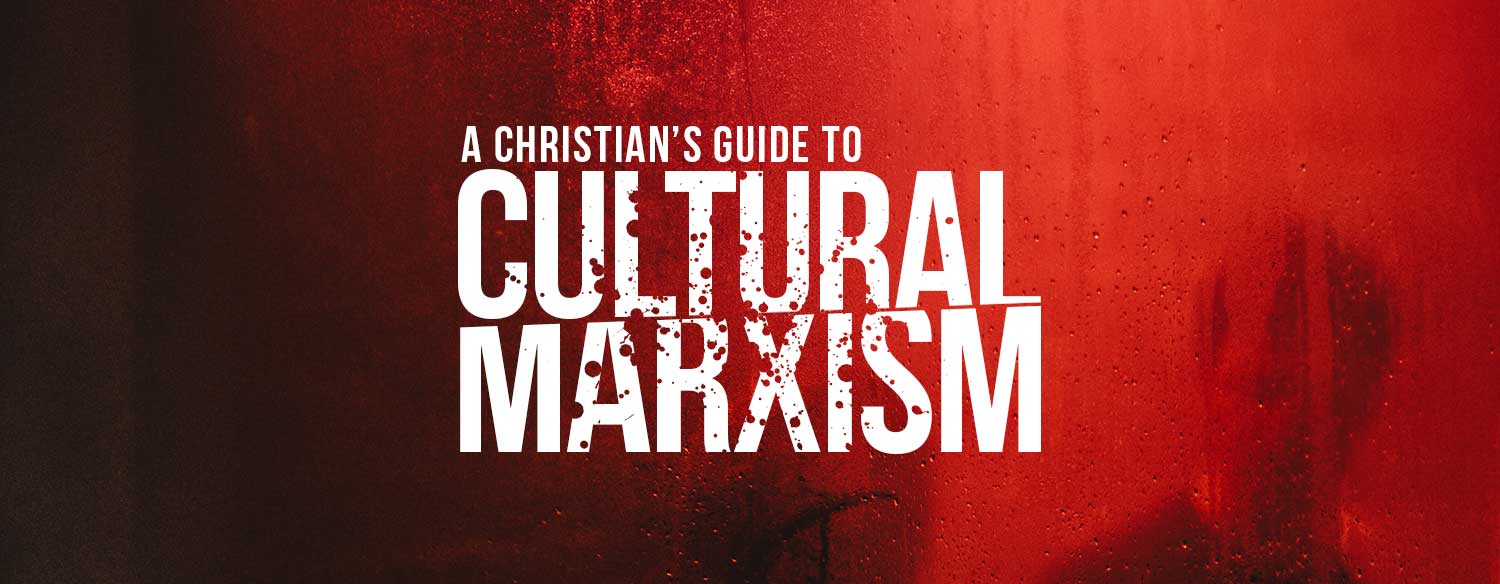If you Google the term “Cultural Marxism,” you will likely be told that it is a right-wing conspiracy theory. But pick a different search engine, or scroll for long enough, and you will find a more robust definition.
Cultural Marxism—for those new to the concept—is a worldview gaining immense popularity throughout the West. It refers to a collection of ideas rather than a collection of people. Cultural Marxism is a secular philosophy that views all of life as a power struggle between the oppressed and the oppressor.
The oppressor is usually an aspect of traditional western society such as the family, capitalism, democracy, or Christianity. The oppressed is anyone who is or who feels marginalised by these institutions, depending on the cultural and political debates of the moment.
Several years ago, the oppressed group in focus was the members of the homosexual community who wanted to marry. Last year, it was schoolchildren who felt threatened by climate change, and biological men seeking to identify as women and compete in women’s sport. This year, it is ethnic minorities protesting police treatment.
What needs to be acknowledged upfront is that this power dynamic in our culture is real, since even the most well-intentioned societies produce inequality that must be addressed.
And as followers of Jesus, we are called to care for all people, and to be particularly sensitive to those who are sidelined by society. Love for ‘the least of these’ is, after all, the example Jesus set for us.
But if we are not discerning, our impulse for compassion will be recruited and used for harm. Jesus stood for the downtrodden—but he also stood for marriage, gender norms, private property, a God-given moral code, good pay for hard work, a faith lived out in public, and civil law and order.
Cultural Marxism, on the other hand, sees all of these divine norms as the problem. And Christians who uncritically accept the oppressed-oppressor narrative end up fighting against the very institutions that God has ordained for human safety and flourishing.
To better understand Cultural Marxism, we do well to trace its origins. To read about it in depth, see the Gospel Coalition’s brilliant exposé on the subject. For a potted version, read on.
Karl Marx (1818–1883) was a German political theorist who believed that workers were oppressed by capitalism and should rise up to overthrow it. He dreamed of a socialist or communist utopia—a classless society where all resources were shared.
Marx’s philosophy was trialled in Russia, China, and many other nations in the 20th century. Tragically, 100 million people lost their lives in the communist bloodbath that followed. What became clear through this experiment is that when a stable government is overthrown, bad actors will always rush in to take power—because power corrupts, and the human heart is evil.
In other words, Marxism is good in theory but terrible in practice because it fails to account for the moral complexity of humans. We are at times victims of the sin and oppression of others, as Marx saw. But we are also guilty of sin ourselves and prone to abuse power when given the opportunity.
Despite Marxism’s obvious failings, many of Marx’s followers continued to subscribe to his ideals. One of these was Antonio Gramsci (1891–1937). He believed that Marxism failed because capitalist values were still too deeply embedded in every aspect of Western society.
A culture-wide revolution was needed, Gramsci argued if Marxism were to succeed. This would involve a reshaping of sexual ethics, organised religion, mass media, academia, the legal system, and more.
According to Gramsci, “In the new order, Socialism will triumph by first capturing the culture via infiltration of schools, universities, churches and the media by transforming the consciousness of society.” This dream came to be known as the “long march through the institutions.”
The doctrines of Cultural Marxism were further developed by a group of intellectuals in Germany known as The Frankfurt School—most prominent among them, Herbert Marcuse (1898–1979). Fleeing the Nazis in the 1930s, this group ended up scattered in universities across the Western world, most notably in New York and California.
Many of the seismic cultural shifts we have been experiencing over the last decade were being promoted by Frankfurt School academics as early as the 1960s. The sexual revolution, the redefinition of tolerance, radical sex education in schools, belief in gender as a social construct, the virtue of censorship, and Critical Theory can all be traced back to this group.
And as many have observed, however deliberate the campaign has been, this “long march through the institutions” is near complete.
Cultural Marxism today is not an organised group or a hidden society. It has its zealous prophets, to be sure. And ironically, they tend to be white, middle class, well educated, and able to cushion themselves from any chaos they might inspire—just like the Frankfurt School and Marx before them.
But more commonly, Cultural Marxism is a zeitgeist; a mood that defines our generation. Political correctness and our tendency to self-censor are some of the more obvious signs that Cultural Marxism has now gone thoroughly mainstream.
These new values are being enforced in more active ways, too. If your opinion fails to align with a narrow set of new ‘orthodox’ ideas, you will pay the price in some way or another—whether that’s your reputation, your relationships, or increasingly even your livelihood.
It is necessary to point out that people don’t need to understand the history of Cultural Marxism or own the label to openly promote its doctrines. But nor is it a conspiracy theory to describe these ideas as Cultural Marxism, since the label is proudly owned by many of its proponents, and its teachings have been in the public domain since their inception.
Today, the unmistakable cry of Cultural Marxism is that of victimhood. Put simply, the more oppressed groups you can claim membership to, the more your opinion counts and the more your demands must be met.
While seeming to promote equality, what Cultural Marxism actually inspires is a never-ending grievance between sexes, races, and other fixed descriptors that divide us. And this is a necessary component of the Cultural Marxist philosophy since the West’s institutions will only be supplanted if enough anger can be rallied to the cause.
To this end, minority groups often find themselves being used for political advantage by those who claim to care about them the most. Radical groups hijacking the George Floyd protests are only the latest, ugly example of this.
Always, Cultural Marxist solutions are political ones. And it can only be this way, since Marxism is an atheistic worldview that only deals with a materialistic universe. To Marxists, the state is God.
This is why Christians must tread with caution. Jesus has sent us as salt and light into our culture. Most of the culture-shaping actions he calls us to actually don’t involve government at all—like intercession, care, financial generosity, friendship, community service, and civil debate, to name just a few.
Yes, Christians are called to be politically engaged as well. But according to Jeremiah 29:7, we are to “work for the peace and prosperity of the city where I sent you into exile, praying to the Lord for it, for its welfare will determine your welfare.” Our voice should be for reform and renewal, not merely joining the chorus for radical overthrow.
But the greatest tool we have been given is the gospel. The truth is that intolerance and oppression and bigotry aren’t some great evil ‘out there’—rather, they are sins found in each of us. As Aleksandr Solzhenitsyn noted, “the line dividing good and evil cuts through the heart of every human being.”
God’s ultimate and eternal solution to these evils is for every individual to be set free from their sin and reconciled to the One in whose image we have all been made. Only on this foundation can we build a truly just society where competing tribes no longer struggle for power—but instead, where each person puts the needs of others before their own.
This side of eternity we won’t achieve utopia. But the closer our culture aligns to the ways of God, the more we will see the vision of Amos 5:24 fulfilled: “Let justice roll down like waters and righteousness like an ever-flowing stream.”























